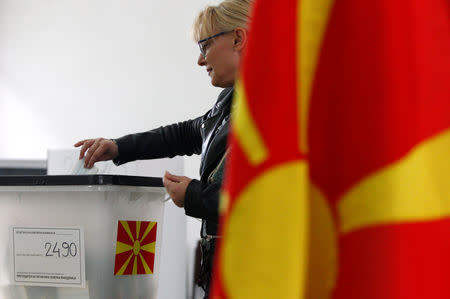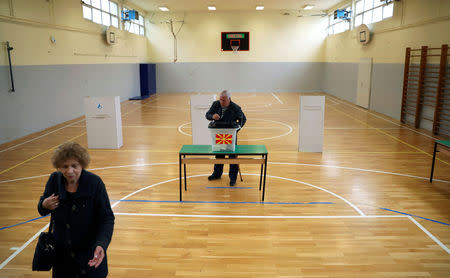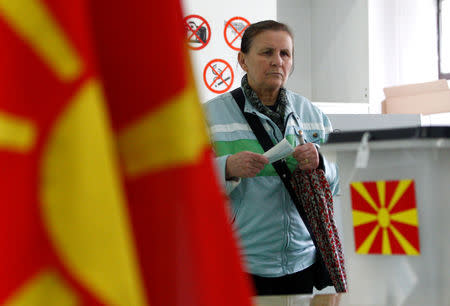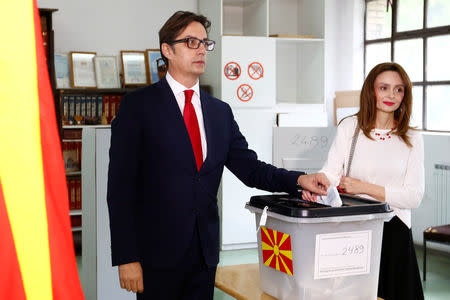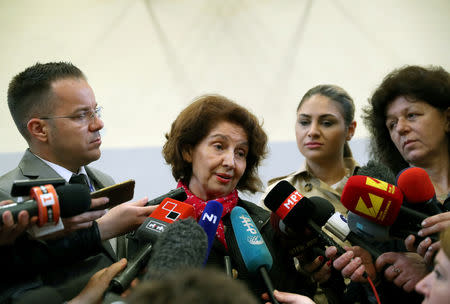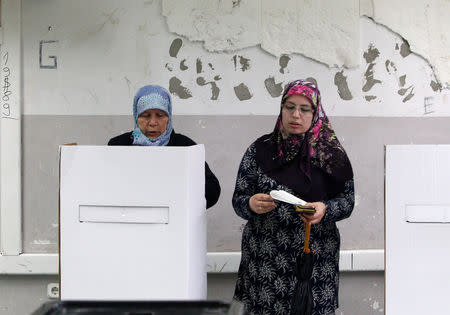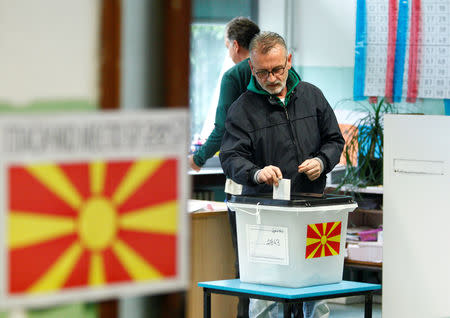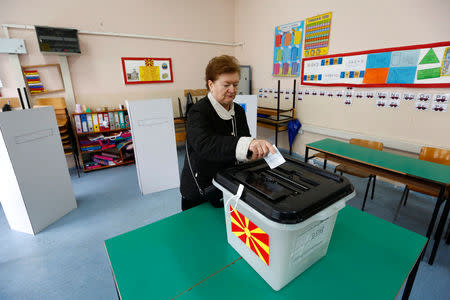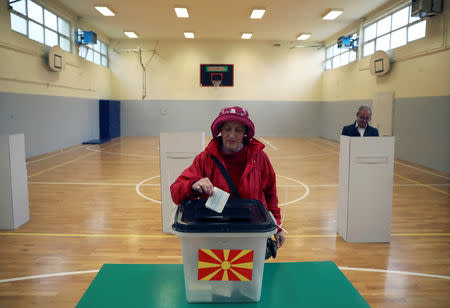North Macedonia holds presidential run-off election amid divisions over name change
By Ivana Sekularac and Kole Casule
SKOPJE (Reuters) - Voters went to the polls in the second round of North Macedonia's presidential election on Sunday, following a campaign dominated by divisions over a change to the country's name that was agreed to mollify Greece and open the way for EU and NATO membership.
Greece had for decades demanded that the tiny ex-Yugoslav republic change its name from Macedonia, arguing that it implied a territorial claim on a northern Greek province also called Macedonia. The new name was formally ratified earlier this year.
But the accord continues to divide North Macedonians and has eclipsed all other campaign issues.
Ahead of Sunday's run-off vote political analysts gave the advantage to the ruling coalition's candidate, long-serving senior civil servant and academic Stevo Pendarovski, over his rival, the candidate of the nationalist VMRO-DPMNE Gordana Siljanovska-Davkova.
The two finished neck-and-neck in the first round of voting two weeks ago. In Sunday's run-off, Pendarovski is expected to win support from voters of the second largest ethnic Albanian party, whose candidate Blerim Reka came third in the first round.
"I expect a massive victory in the run-off," Pendarovski told reporters after casting his ballot. "I expect the election day to be calm and that we - the country which is expecting to get the date to start the EU membership talks - are capable of organising free and fair elections," he said.
In contrast to Pendarovski, Siljanovska-Davkova, a university professor, opposes the name change, although she is also pro-European Union. She has accused the government of dragging its feet on economic reforms.
"I expect big turnout and I expect to win," she said after casting her ballot.
Asked what she plans to do about the name agreement she said: "Now it is the official name, it is embedded in our constitution. I will respect that, but I will never use it."
The presidency is a largely ceremonial post in North Macedonia but he or she is the supreme commander of the armed forces and also signs off on parliamentary legislation.
The refusal of outgoing President Gjeorge Ivanov, a nationalist, to sign some bills backed by parliament has delayed the implementation of key laws, including one on wider use of the Albanian language - 18 years after an ethnic Albanian uprising that pushed the country to the brink of civil war.
But Ivanov had no authority to block the constitutional amendments passed earlier this year by a two-thirds majority of parliament that enabled the name change to North Macedonia.
THREAT OF LOW TURNOUT
One concern on Sunday was low turnout among the country's 1.8 million eligible voters - if it falls below 40 percent in the second round the election will be declared invalid. In that case, the speaker of parliament would become interim president and new elections would have to be held.
"The ruling coalition voters are disappointed with the pace of reforms, while opposition supporters see that their candidate is not set to win, so many people are likely to stay at home," said Petar Arsovski, an analyst.
The State Election Commission said turnout up until 1 p.m. (1100 GMT) was 20.5 percent, as it was at the same point in voting two weeks ago. Final turnout in the first round of voting was 41.6 percent.
Polling stations will be open until 7 p.m. (1700 GMT), with the first preliminary results due two hours later.
Zizi Markovic, 74, was the first to vote at a polling station in Kole Nedelkovski school in the capital, Skopje, when it opened at 7 a.m..
"I am proud to have been the first voter. I expect that after this election North Macedonia will move faster towards the EU and NATO (membership)," she told Reuters.
But some opponents of the country name change planned to boycott Sunday's vote.
"Vote? Why? Voting means I’m giving legitimacy to the name change. No thanks," said Dejan Temelkovski, 47, a dentist.
(Editing by Gareth Jones and Frances Kerry)

